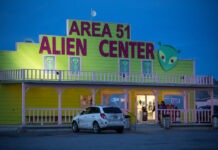As a child we are taught that something that is wrong is a “no no”. That is not what this article is about. It is quite the opposite.
There are three great philosophers that we respect and find very relevant, Mark Twain, Albert Einstein and Deepak Chopra. In their individual ways they have stated the same philosophy. Intellect, or true knowledge, is knowing what you do not know.
Other than the teenager, no person has all of the answers. As we learn and become more educated we learn the limits in our knowledge. We get to know where the gaps are in our knowledge or understanding. The more we know, the more we know how little we know.
Some people read the bible or listen to a preacher and delude themselves into believing that they have all the answers. The true biblical scholars spend their entire lives studying the texts trying to find answers and really finding more questions.
Knowing that no person knows all the answers, and especially that we do not have all of the answers, might make some people uneasy. They want to want to believe that their spiritual leader, spouse, boss, political leaders or other authority has all of the answers, at least to their specialty. For most of us there is a degree of comfort in knowing that we are not alone, everyone has gaps in their knowledge.
It is not unusual to find the marriage counselor that has been divorced or the priest that has doubts about their faith. We know cancer researchers that have been looking for the causes of cancer for over sixty years and have more answers to questions now than they had questions sixty years ago. They also have more unanswered questions now than they did sixty years ago.
No person has knowledge of everything. No person knows all of the subjects where they have don’t have gaps in their knowledge. Every day new discoveries are made. With each discovery come new questions and new subjects for new gaps in our knowledge.
When teaching at a university we had open book tests. If you are not familiar with the term, an open book test allows the student to use their book, notes and reference materials to complete the test. Our philosophy is that it as important, if not more important, to know how to find an answer than to memorize an answer.
As we learn more, the correct answer changes. In Europe, prior to 1492, the answer to the question about the shape of the Earth was that it was flat. After 1493 the correct answer was that the Earth was a circle or sphere. Now people have ventured into space and the correct answer is pear shaped. In 500 years the shape of the Earth has not changed, our knowledge has.
Even today the long answer to the question “what is the shape of the Earth?” should be “based on the current knowledge base, the Earth is an irregular pear shape.” This acknowledges that there are limits to our knowledge.
We were both raised in families that believed strongly in science. We grow-up in a time when science was king. By the time we got to college many universities had department studying “paranormal” phenomenons. Extrasensory perception was being studied by the federal government. We all know that there was a lot we did not know.
We have spent many years studying alternative healing and spirituality. For us and many other people we know. Reports of people being visited by spirits or extraterrestrials are greeted not with skepticism but with envy, sometimes even jealousy.
When we teach our classes our students often comment on the vast amount of knowledge we have, we are always astounded at the gaps in our knowledge. There are subjects and modalities that we have never heard of nor have only a fleeting knowledge of.
There are many more subjects that we know we do not know today than we know we did not know about when we left high school. We gain additional knowledge every day. We connect facts and theories expanding our knowledge even more. The result is always that we have more and more questions. The truly ignorant are the ones who believe they have all the answers. The truly informed knows how little they know but also know that all knowledge is available if you know where or how to find it.
Chris and Dave Wattenberg CHTP, SHP/I










